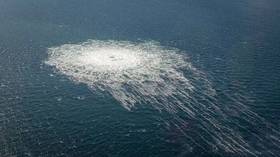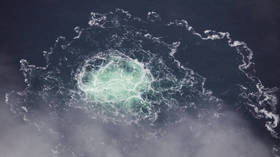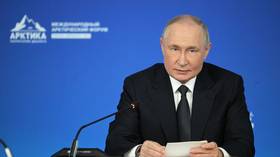UK responds to Russian accusation over Nord Stream

The United Kingdom has rebuffed a Russian accusation that it orchestrated an attack on the Nord Stream pipelines in the Baltic Sea. The statement came hours after Moscow claimed that the Royal Navy was involved in the explosions.
Writing on Twitter on Saturday, the UK Ministry of Defence claimed that Moscow “is resorting to peddling false claims of an epic scale” in an effort to detract the global community from “their disastrous handling of the illegal invasion of Ukraine.”
The ministry went on to denounce the accusation as an “invented story” which “says more about arguments going on inside the Russian Government than it does about the West.”
Meanwhile Maria Zakharova, the Russian Foreign Ministry spokeswoman, has signaled that Moscow intends to draw the attention of global community and the UN Security Council to “a series of terrorist attacks against Russia in the Black and Baltic Seas” and to Britain’s involvement in the matter.
Earlier on Saturday, the Russian Defense Ministry alleged that Royal Navy operatives “took part in planning, supporting and implementing” the plot to destroy the key Nord Stream gas pipelines. It did not provide any direct evidence to support its assertion.
The Russian Foreign Ministry earlier claimed that NATO conducted a military exercise during the summer which featured the intensive use of “deep-sea equipment’’ close to the location where the undersea explosions occurred.
The pipelines, which were built to deliver Russian natural gas directly to Germany, lost pressure abruptly on September 26, following a series of underwater explosions off the Danish island of Bornholm.














